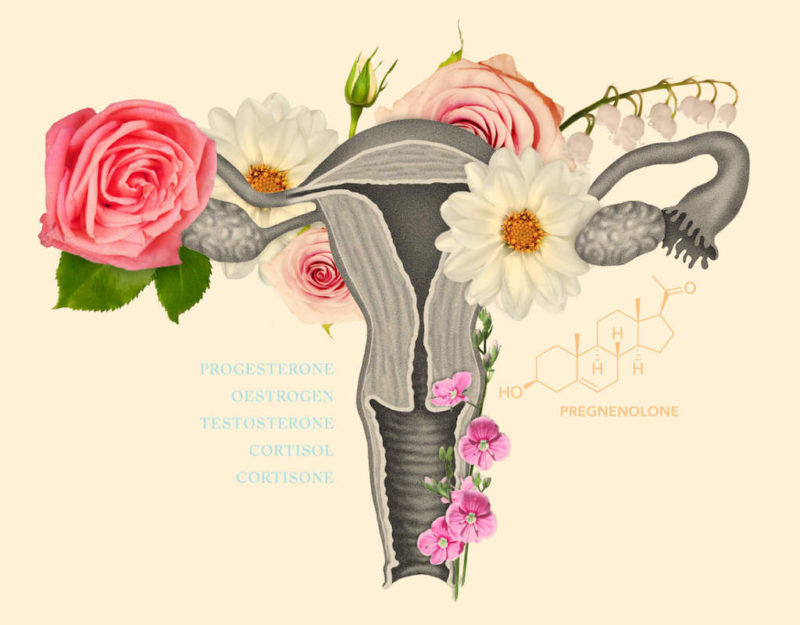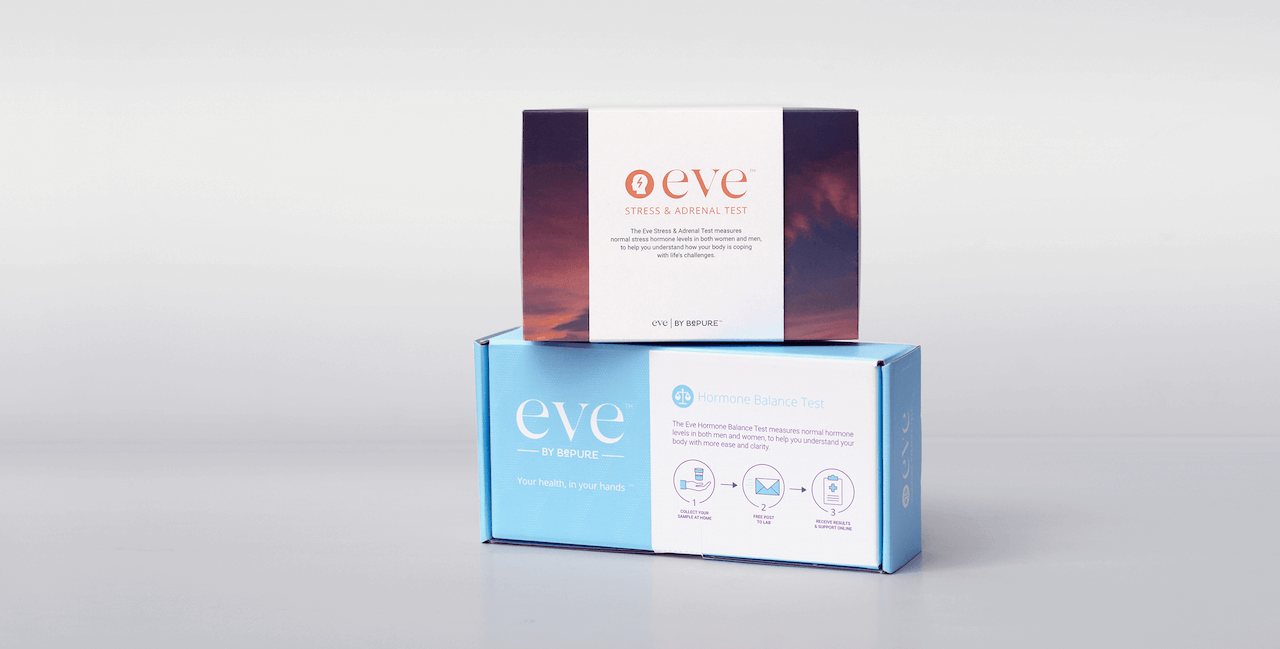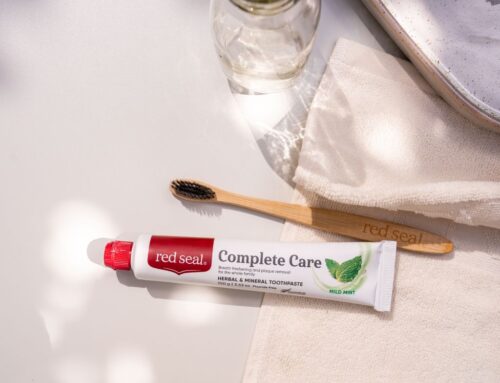Sponsored Content for Eve Health
What do moody teenagers, weeping pregnant women and a PMS-fuelled rant all have in common?
The answer is hormones. Specifically hormones that are going through times of change and those that are imbalanced.
Feeling ‘hormonal’ is not a new idea for many of us. Our bodies are shifting, changing, growing and transforming all the time.
How can hormones – things that can’t even be seen or touched – somehow make a really good cry and an entire block of dark chocolate feel like the only way you’ll possibly make it through the next hour?
We believe that all women have a responsibility to learn about, and understand, their hormones; and to teach their daughters and nieces about hormones too. These biochemicals are incredibly powerful, and have the ability to make our lives heaven or hell. But with knowledge and understanding, we are able to take back the power.
Still feeling foggy about hormones?
Fear not, you’re about to learn. Welcome to Hormones 101.
1. What even are hormones?
Hormones aren’t just essential for periods & reproduction, they are fundamental to all the systems that make up your body.
Hormones are natural chemicals inside you that literally act as messengers, telling your cells what to do, how to function and what kinds of things to prioritise.
They are produced by the endocrine system and play an important role in regulating bodily processes, like hunger, blood glucose, blood pressure, metabolism, energy, bone health, body shape, and sexual desire.
2. How hormones are controlling your cycle
Simply put, your hormones dictate exactly how you’re going to feel for a week or two each month.
Between the years of puberty and menopause, the female body goes through a hormonal cycle each month to prepare for potential pregnancy; whether getting pregnant is on your to-do list that month or not.
There are four main phases of the menstrual cycle, and each presents its own shift in your body’s level of each hormone, energy, mood, and vitality.
If you pay close attention by tracking your cycle, you’ll notice that you feel differently at different times of the month. The fluctuating hormones and their ratios with each other have everything to do with these subtle shifts in energy, mood and desire.

3. The hormones you need to know about:
As far as specific hormones go, here’s a brief run-down on the one we talk about the most:
Sex hormones:
Play primary roles in reproduction (and preparing the body for this), and secondary roles in everything from bone health, to mental health and energy.
- Oestrogen: The main female sex hormone that’s mostly produced in the ovaries and supports energy, motivation, sleep, libido, skin health, bone health and gives women beautiful feminine curves.
- Progesterone: The feel good, calming sex hormone that balances oestrogen out and supports pregnancy. This hormone is primarily produced after, and by, the process of ovulation and we make less of it during times of stress.
- Testosterone: The main ‘male’ sex hormone but women have it in smaller amounts too. Testosterone is essential for muscle growth, supporting energy, motivation and libido.
- DHEA: often referred to as the ‘grandmother’ hormone, DHEA is a precursor that makes our other hormones, such as oestrogen and testosterone. It’s also known as an anti-aging hormone for its youth-boosting properties.
Stress Hormones:
Help us face and handle stress; including physical, mental, emotional, and professional stress.
- Cortisol: A survival hormone produced by the adrenal glands that helps us cope with stress, and is also our main daytime hormone. Cortisol helps us feel awake and alert and regulates the immune system, blood sugar, blood pressure, nervous system, inflammation and energy.
- Adrenaline: Similar to cortisol, adrenaline is another stress hormone that activates the ‘fight or flight response’ and prepares the body for short term stressors. Adrenaline is what you can feel pulsing through your body after a sudden burst of panic.
A couple of others that affect or are affected by stress & sex hormones:
- Insulin: Secreted by the pancreas in response to glucose to help keep blood sugar within a particular range. Blood sugar balance is touted by many to be the key to many areas of good health.
- Melatonin: Affectionately referred to as the sleepy hormone, melatonin works in see-saw with cortisol to control your internal body clock, and is directly related to sleep patterns and cycles. This hormone rises at night time to induce deep, restful sleep.
4. The signs of hormone imbalance to watch out for
Essentially, for both men and women, hormones are a pretty big deal. When hormones are higher or lower than optimal, or are out of balance in ratio with other hormones, this can look like:
- Low energy, fatigue & insomnia;
- Anxiety, depression & unstable moods;
- The inability to lose or gain weight, unexplained weight gain & difficulty building muscle mass;
- IBS-type symptoms such as bloating, constipation and diarrhea;
- Period problems e.g. heavy or irregular periods, painful periods or a lack of periods (amenorrhea);
- Pre-menstrual issues e.g. pain or cramping, bloating or gas, sore breasts;
- Skin issues e.g. acne, dryness and fine lines and wrinkles;
- Trouble getting or staying pregnant;
- Sexual dysfunction & low libido;
- Headaches e.g. pre or post-period;
You might have read the list above and thought ‘hold on, aren’t those just normal?’, ‘Isn’t PMS just part of being a woman?’

5. Just because hormonal signs are common, doesn’t mean they’re normal…
We’re here to tell you that no, it’s not! It’s not ‘normal’ and it doesn’t have to be your norm either. This realisation that you don’t have to live with these things has been nothing short of revolutionary for some people.
Similar to a fever or a sore knee, these signs of hormone imbalance really are just messages from different areas of your body letting you know that it needs attention, and a little TLC to nurture it back to balance.
The difficulty is, hormonal messages can often be a little more abstract and difficult to decipher than the surface level signs and symptoms we know so much about. For example:
- Heavy, painful periods could be because your body is having difficulty detoxifying hormones and your oestrogen is reabsorbing into your bloodstream. It could be that your oestrogen levels are high. Or it could indicate that your stress levels are preventing you from ovulating each month, leading to low progesterone levels.
- Your feelings of anxiety and trouble falling asleep at night could be because your cortisol is elevated due to your intense exercise and low carb diet, or it could be the result of anovulatory cycles and progesterone levels that are on the floor.
- Weight gain could indicate higher levels of oestrogen that’s ‘unopposed’ by progesterone, or it could be the result of low testosterone, or even high cortisol.
Confusing, isn’t it?
That’s why we decided there had to be a way to get rid of the guessing game and make hormones as simple as possible.
6. Knowledge is power
Testing your hormones and their metabolites tells you exactly how your body is producing and processing different hormones. This, in turn, helps you to understand exactly where you are at now, and can help identify the root cause of the signs and signals your body might be sending you.
Knowledge really is power: when you know exactly what the root issue is, finding balance becomes a whole lot more straightforward.
When you do an Eve Test, we take care of the testing, analysis, recommendations and next steps, providing you with:
- Your results in a way that’s easy to understand;
- Additional notes from your consultant;
- Personalised diet, movement, lifestyle and nutritional recommendations;
- Resources including planners and a recipe book to help you implement them.
Because we get it. Hormones, and more specifically; hormone imbalances, can be confusing. But they don’t have to be.
Ultimately, testing your hormone levels is a good idea at almost any time you want to understand your body and the chemicals that are driving your wellness in more depth, and learn how you can bring them into balance.
Our hormones have been hushed, and it’s time for them to rise
“Why don’t I know anything about hormones if they’re such a big deal?” is a question we hear a lot. The honest answer? We think that in general, women’s health (and most things linked to reproductive health for both sexes) has been considered taboo. People haven’t been comfortable to talk about the way our bodies work and the magic involved ‘cos, ya know, *hushed voice* blood and sex and stuff.
Thankfully, times are changing.
As hormones drive so much in our lives, we must understand them, get to know them, and listen to their needs in order to love ourselves and live our best lives.
Looking for more information? Head over to Eve’s FAQs page where you can find out about Eve, what the Eve Hormone Balance Test and Eve Stress & Adrenal Test measure, how they can help you and more.
This article originally appeared on Eve Health and was republished here with permission.
Health Disclaimer
This article contains general information and discussions about health and related subjects. The information and other content provided in this article is not intended and should not be construed as medical advice, nor is the information a substitute for professional medical expertise or treatment. If you or any other person has a medical concern, you should consult with your health care provider or seek other professional medical treatment.
See more:







Leave A Comment
You must be logged in to post a comment.